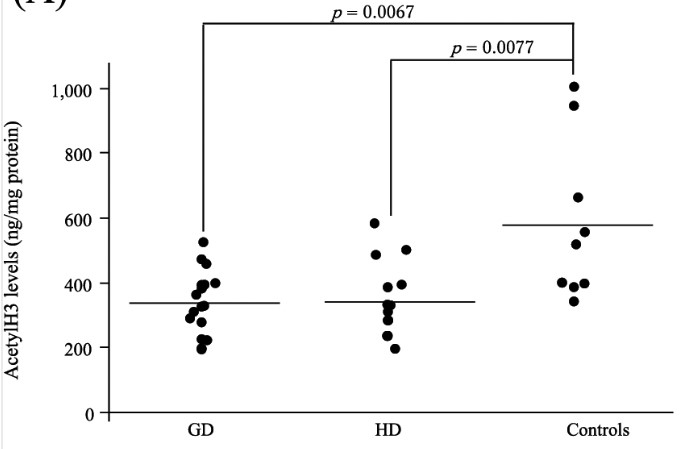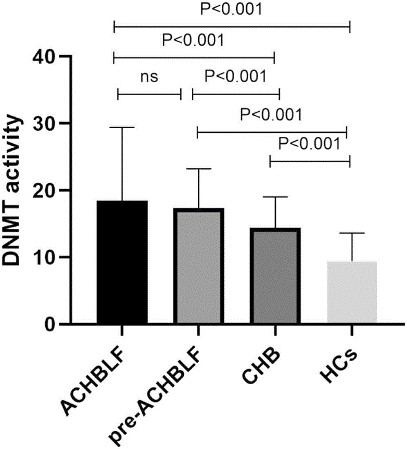Epigenetic Kits
Background
Overview
Epigenetics refers to the study of heritable changes in gene function that occur without a change in the DNA sequence itself. These changes are mediated by various molecular mechanisms, including DNA methylation, histone modifications, and non-coding RNA molecules. Epigenetic modifications are essential for normal cellular function and can have significant effects on an organism's phenotype.
Epigenetic Kits are a category of research tools designed to study epigenetic modifications, which are changes in gene expression that do not involve alterations to the underlying DNA sequence. These modifications play a crucial role in various biological processes, including development, aging, and disease. The availability of specialized Epigenetic Kits has significantly advanced the field of epigenetics by providing researchers with the means to investigate these modifications efficiently and accurately.
Importance of Epigenetic Research
Research into epigenetic modifications is vital for understanding how genes are regulated and how these regulations can go awry in disease. Epigenetic changes have been implicated in a wide range of conditions, including cancer, neurological disorders, and cardiovascular diseases. By studying these modifications, scientists hope to uncover new therapeutic targets and develop novel diagnostic tools.
Features of Epigenetic Kits
Epigenetic Kits offered by companies like Abcam and QIAGEN provide a comprehensive range of tools for studying various aspects of epigenetics. These kits are designed to be user-friendly, reproducible, and adaptable to different experimental conditions. Key features include:
- Dedicated Kits for Specific Modifications: There are kits specifically designed for DNA methylation analysis, histone protein analysis, and other epigenetic modifications.
- High Sensitivity and Specificity: The kits are optimized to detect low levels of epigenetic marks with high precision, ensuring accurate results.
- Ease of Use: Many kits offer streamlined protocols that simplify the experimental process, making them accessible to a wide range of researchers.
- Supporting Resources: Companies often provide extensive resources, including articles, protocols, and technical support, to help researchers get the most out of their kits.

Applications
Epigenetics is the field of science that studies changes in the gene expression of organisms that are caused by changes other than the gene sequence, such as DNA methylation, histone modification, RNA methylation, etc. These changes have important effects on the development of organisms, cell differentiation and disease occurrence. Epigenetic kits have a wide range of applications, and the following are some of the main application areas and specific application examples:
- DNA methylation analysis. DNA methylation is one of the most common epigenetic modifications, usually involving the methylation of cytosine residues. This modification plays a key role in gene silencing, embryonic development and cancer occurrence.
- Study on histone modification. Histone modifications, such as acetylation, methylation, and phosphorylation, have important effects on chromatin structure and gene expression. ChIP (Chromatin immunoprecipitation) technique is a common method of protein modification in the research group.
- RNA methylation detection. RNA methylation, especially m6A modification, has been a hot topic in the field of epigenetics in recent years. This modification affects mRNA stability and translation efficiency. Epigenetic kits can be used to enrich and detect M6A-modified RNA, thereby revealing its role in gene expression regulation.
- Non-coding RNA research. Non-coding Rnas, such as micrornas and long non-coding Rnas, are involved in gene expression regulation through a variety of mechanisms. Epigenetic kits, such as the SMARTer smRNA-Seq Kit, can be used to build small RNA sequencing libraries that analyze small RNA expression profiles in specific tissue or cell states.
- Epigenetic regulation of disease research. Epigenetic modifications have been implicated in the development of many diseases, including cancer, neurodegenerative diseases, and cardiovascular diseases. Using epigenetic kits, researchers can explore the epigenetic mechanisms of these diseases at the molecular level, providing new ideas for the diagnosis and treatment of diseases.
Case Study
Case Study 1: Histone H3 Total Acetylation Detection Fast Kit.
Autoimmune thyroid diseases (AITDs), such as Graves' disease (GD) and Hashimoto's disease (HD), are organ-specific autoimmune diseases. Histone acetylation, especially that of histone H3, is an epigenetic mechanism that regulates gene expression and is associated with the development of autoimmune diseases. However, physiological variations in histone acetylation are not yet clear. In this study, histone H3 acetylation levels were analyzed in peripheral blood mononuclear cells (PBMCs) using a histone H3 total acetylation detection fast kit. Then, histone H3 acetylation levels were evaluated in AITD patients to clarify the association with the pathogenesis of AITD. They observed daily variation in histone H3 acetylation levels, and their coefficient of variances (CVs) were approximately 48.3%. Then, histone H3 acetylation levels were significantly lower in GD and HD patients than in control subjects and these differences were larger than the daily variation in histone acetylation.

(Emi Haga, 2023)
Fig1. The acetylH3 levels were significantly lower in GD and HD patients than in control subjects.
Case Study 2: ApoBrdU DNA Fragmentation Assay Kit
Docetaxel-based combination chemotherapy is approved by the FDA for the treatment of metastatic castration-resistant prostate cancer. Unfortunately, docetaxel's efficacy is significantly limited by its considerable toxicity on hematopoietic progenitor cells, thus necessitating dose reduction or even discontinuation of the chemotherapy. Induction of pre-mitotic arrest protects cells against docetaxel-mediated toxicity and affords therapeutic opportunities. Cell cycle progression was examined by propidium iodide staining. Apoptotic DNA fragmentation was detected using APO-BRDU kit. In the course of our current work, we treated the myeloid progenitor TF-1 cells and the castration-resistant PC-3 and DU-145 prostate cancer cells with physiologically relevant concentrations of zinc. Moreover, pre-treatment with zinc abolished docetaxel-induced apoptosis in TF-1 cells, whereas such treatment had no effect on apoptosis in PC-3 and DU-145 prostate cancer cells.

(Peter Makhov, 2011)
Fig2. Zinc doesn’t protect TF-1 cells from TRAIL/MSA-mediated apoptosis.
Case Study 3: DNA Methylation Kit
ethylation status of genome varies between pre-acute-on-chronic hepatitis B liver failure (pre-ACHBLF), acute-on-chronic hepatitis B liver failure (ACHBLF), and chronic hepatitis B patients. This study aimed to find better prognostic indicators for acute-on-chronic liver failure. The overall genome methylation rate was determined using MethylFlash™ Methylated DNA Quantification Kit(Colorimetric). DNMT activity were measured using DNA Methyltransferase Activity/Inhibition Assay Kit. The activity of DNMT in ACHBLF group was significantly higher than that in chronic hepatitis B group (P<0.001). The mRNA expression level of DNMT1 was higher than that in pre-ACHBLF group (P<0.01) and CHB group (PP<0.001). The mRNA expression level of MBD1 in ACHBLF group was also higher than that in CHB group (P<0.001) and healthy controls (HCs) (P<0.01). And the mRNA expression level of MBD3 and MBD4 in ACHBLF, pre-ACHBLF and CHB group were lower than that in HCs (P<0.001).

(Haiming Li, 2024)
Fig3. The activity of DNA methyl transferases(DNMT) in PBMCs of participants with ACHBLF, pre-ACHBLF, CHB and HCs.
Advantages
- Product diversity. Our kits detect routine epigenetic activities such as DNA methylation, histone modification, RNA methylation, etc. The kits are important tools to study the mechanism of gene expression regulation in epigenetics.
- Technical specialization. The activity test kits we offer cover a wide range of biological research areas, and our R&D team is dedicated to developing all kinds of test kits.
- Customized service. We not only provide standardized test kits, but also provide customized test kits according to customer needs. The flexibility of this service can better meet specific research needs and provide customers with more personalized solutions.
Creative BioMart contains the Epigenetic Kits to offer a range of solutions for studying different aspects of epigenetic modifications, from DNA methylation to chromatin structure. The development of these kits has not only facilitated scientific discovery but also holds promise for the development of new diagnostic and therapeutic strategies for a variety of diseases. You can also let us know if you have any customized requirements. Please contact us for more product details.
References
- Haga E.; et al. Intraindividual variation in histone acetylation and its impact on autoimmune thyroid diseases. Endocr J. 2023;70(12):1169-1174.
- Makhov P.; et al. Docetaxel-mediated apoptosis in myeloid progenitor TF-1 cells is mitigated by zinc: potential implication for prostate cancer therapy. Prostate. 2011;71(13):1413-1419.
- Li H.; et al. Prognostic value of genome-wide methylation in acute-on-chronic hepatitis B liver failure. Pathol Res Pract. Published online March 2, 2024.
















